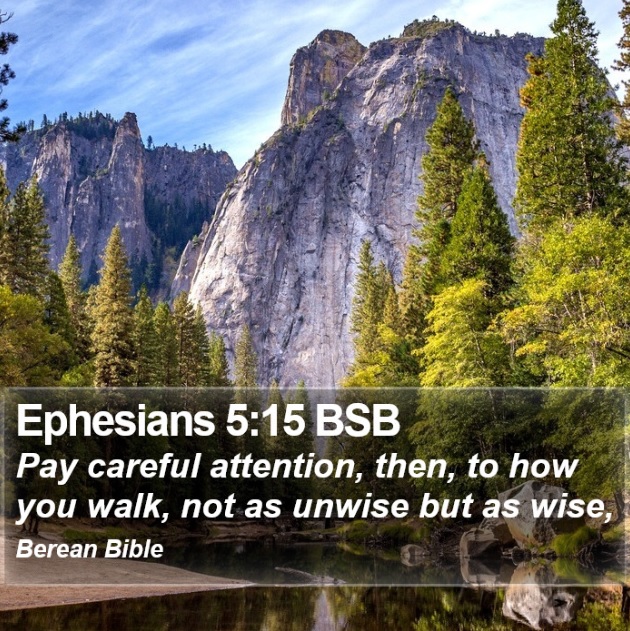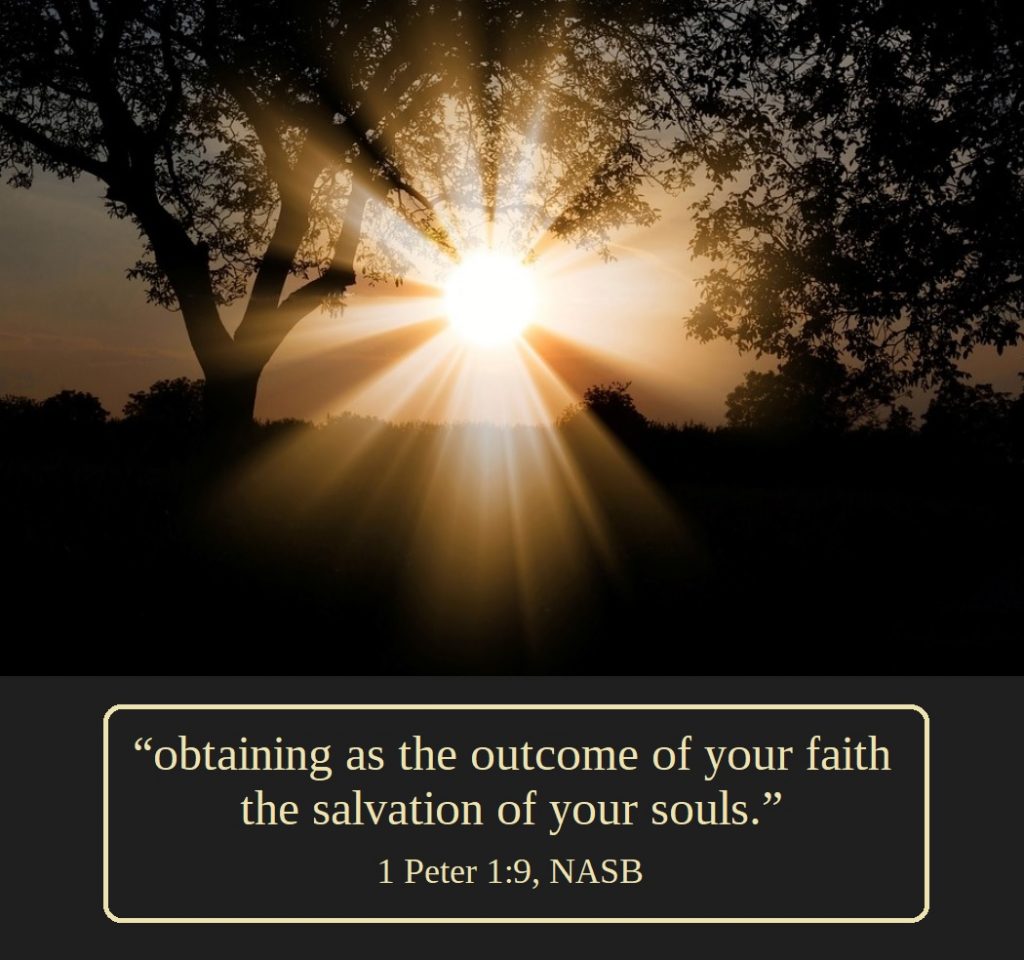“Go therefore and make disciples of all the nations…teaching them to observe all that I commanded you; and lo, I am with you always, even to the end of the age” (Matthew 28:19-20, NASB).
——————–
Contents:
1) God’s Greatest Desire for Us (Berry Kercheville)
2) Rebels (Russ Bowman)
3) Part of the Prophecy of the Lord’s Crucifixion (Psalm 22:15-18)
——————–

-1-
God’s Greatest Desire for Us
Berry Kercheville
“For this reason I bow my knees before the Father, from whom every family in heaven and on earth is named, that according to the riches of his glory he may grant you to be strengthened with power through his Spirit in your inner being, so that Christ may dwell in your hearts through faith—that you, being rooted and grounded in love, may have strength to comprehend with all the saints what is the breadth and length and height and depth, and to know the love of Christ that surpasses knowledge, that you may be filled with all the fullness of God. Now to him who is able to do far more abundantly than all that we ask or think, according to the power at work within us, to him be glory in the church and in Christ Jesus throughout all generations, forever and ever. Amen” (Ephesians 3:14–21 ESV).
Have you given thought to what God wants from you more than anything else? What is God’s greatest desire from his creation? Paul’s prayer is a detailed conclusion to the prayer he began in 1:15-20. Let’s break the prayer down so we can get a glimpse of God’s ultimate purpose.
“For this reason”
This is the third time Paul used this phrase (1:15; 3:1), each time breaking off his prayer to give explanation to a central thought in his requests.
“That; So That”
Four times in the text Paul used these words (typical in Ephesians) to express purpose and the end-goal of our spiritual growth. Notice these purposes:
“…that he may grant you to be strengthened with power through his Spirit in your inner being…” (16)
“…so that Christ may dwell in your hearts…” (17)
“…that you, being rooted and grounded in love, may have strength to comprehend…and to know the love of Christ…” (17-18)
“…that you may be filled with all the fullness of God.” (19)
“Strength; Power”
The words, “that” and “so that” direct us to see the purpose of the prayer and what we should desire to attain from God. Strength and power from God’s Spirit is needed if we are to attain “Christ dwelling in our hearts.” This cannot be accomplished by our own strength; it is attained by the power from God’s Spirit in his revealed word. The words, “strength, power, and might” were also used in the beginning of the prayer (1:15-20) in which Paul prayed that we know “the immeasurable greatness of his power toward us…according to the working of his great might that he worked in Christ when he raised him from the dead…” Chapters two and three give us detailed descriptions of God’s power toward us.
“Christ Dwelling in Our Hearts”
If Christ is dwelling in our heart, our heart and lifestyle actually looks like Christ lives there. Our homes reflect our presence by the way we decorate. If Christ makes his dwelling with us, our manner of life will reflect his presence.
“Rooted and Grounded in Love”
If Christ has “redecorated” our lives, we will become solidly anchored in his love for us, making it nearly impossible for us to turn our hearts toward anyone or anything else as our primary love.
“Strength to Comprehend…”
Paul prays that we comprehend the breadth, length, height and depth and to know the love of Christ that surpasses knowledge. This strikes deeply at any casual approach to Bible study instead of desiring to know every facet of the mind of God. We must ask, “To what extent am I lacking this fullness, and what am I going to do about it?” Knowing God in his fullness will lead us to have an experiential knowledge of the love of Christ that causes us to live sacrificially in everything we do.
“Filled with All the Fullness of God”
Here is the end-goal. It has always been God’s goal. He created us in his image, and after we fractured that image through sin, all scripture has been about renewing our minds so that we are “created after the likeness of God” (Eph. 4:24). We must study to comprehend the fullness of God and experience his love so that the world sees him in us.
Seem impossible? Far beyond what you can imagine or attain?
“He is able to do exceeding abundantly beyond all that we ask or think” (20, NKJV).
Why is this prayer so important? Because when this happens,
“To him be glory in the church and in Christ Jesus…forever and ever. Amen” (21).
Now, who among us has been praying this prayer? Hmmm.
— Via Focus Online, February 18, 2020
——————–

-2-
Rebels
Russ Bowman
“And there happened to be there a rebel, whose name was Sheba the son of
Bichri, a Benjamite. And he blew a trumpet, and said: ‘We have no share
in David, nor do we have inheritance in the son of Jesse; every man to
his tents, O Israel’” (2 Sam. 20:1).
Why is it that there always seems to be a rebel around? It is the case
in almost any circumstance, almost any collective effort or
organization, and particularly when some authority is recognized.
Someone is dissatisfied. Someone stirs trouble, incites opposition,
complains, undermines, subverts, gossips, suggests, deceives, lies.
Perhaps it is the result of ego and selfishness, envy or jealousy. Maybe
it grows out of poor leadership and failure of inclusion. For some
reason, some men are given to a competitive drive for ascendancy, and
submission to another man or group of men is repugnant. Almost certainly
Satan is involved. It is ugly. It is sad. It is destructive. It infects
God’s people all too often.
Unity is a difficult part of our service to God – not unity with God so
much (although that has its challenges and we often don’t like what He
demands either). More complicated is unity with others. Eph. 4:4ff
reminds us that God has offered a number of singular elements upon which
we are to build commonality – one body, spirit, hope, Lord, faith,
baptism, God and Father. But the admonition of vs. 1-3 begins with a
determination to unity and the humility which makes it possible. Unity,
like rebellion, begins with my deportment and my decision.
I don’t know what stirred up Sheba. Perhaps, like Shimei in the same
story, he felt that David had destroyed Saul and usurped the throne. We
are simply not told. What we are told is that he rebelled, led others to
rebel, and eventually had his head removed and thrown over the wall of
the city of Abel – a fitting end to one who opposed God’s anointed. A
fitting end for a rebel.
God help me that I am not the rebel.
— Via Articles from the Knollwood church of Christ, June 2024
——————–
-3-
Part of the Prophecy of the Lord’s Crucifixion
“My strength is dried up like a potsherd,
And my tongue cleaves to my jaws;
And You lay me in the dust of death.
For dogs have surrounded me;
A band of evildoers has encompassed me;
They pierced my hands and my feet.
I can count all my bones.
They look, they stare at me;
They divide my garments among them,
And for my clothing they cast lots.”
Psalm 22:15-18, NASB
——————–
The Steps That Lead to Eternal Salvation
1) Hear the gospel — for that is how faith comes (Rom. 10:17; John 20:30-31).
2) Believe in the deity of Jesus Christ, the Son of God (John 8:24; John 3:18).
3) Repent of sins. For every accountable person has sinned (Romans 3:23; Romans 3:10), which causes one to be spiritually dead (Ephesians 2:1) and separated from God (Isaiah 59:1-2; Romans 6:23). Therefore, repentance of sin is necessary (Luke 13:5; Acts 17:30). For whether the sin seems great or small, there will still be the same penalty for either (Matt. 12:36-37; 2 Cor. 5:10) — and even for a lie (Rev. 21:8).
4) Confess faith in Christ (Rom. 10:9-10; Acts 8:36-38).
5) Be baptized in water for the remission of sins (Mark 16:16; Acts 2:38; 22:16; 1 Pet. 3:21). This is the final step that puts one into Christ (Gal. 3:26-27). For from that baptism, one is then raised as a new creature (2 Cor. 5:17), having all sins forgiven and beginning a new life as a Christian (Rom. 6:3-4). For the one being baptized does so “through faith in the working of God” (Col. 2:12). In other words, believing that God will keep His word and forgive after one submits to these necessary steps. And now as a Christian, we then need to…
6) Continue in the faith by living for the Lord; for, if not, salvation can be lost (Matt. 24:13; Heb. 10:36-39; Rev. 2:10; 2 Pet. 2:20-22).
——————–
Tebeau Street
CHURCH OF CHRIST
1402 Tebeau Street, Waycross, GA 31501
Sunday: 9 a.m. Bible Classes and 10 a.m. Worship Service. Congregational Song Service: 5 p.m. for every first Sunday of the month.
Wednesday: 7 p.m. Bible Classes
evangelist/editor: Tom Edwards (912) 281-9917
Tom@ThomasTEdwards.com
https://thomastedwards.com/go/all.htm (This is a link to the older version of the Gospel Observer website, but with bulletins going back to March 4, 1990.)



















